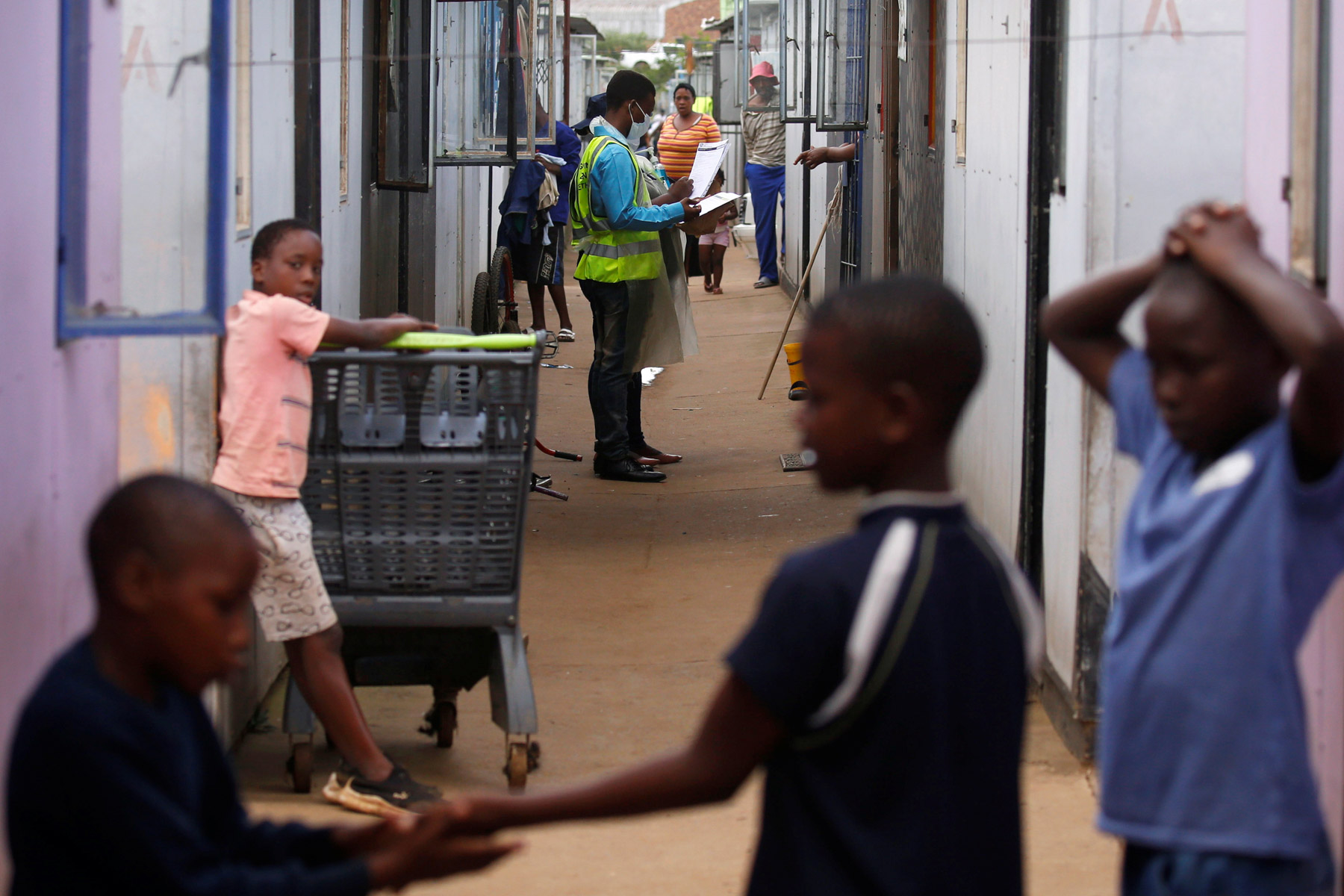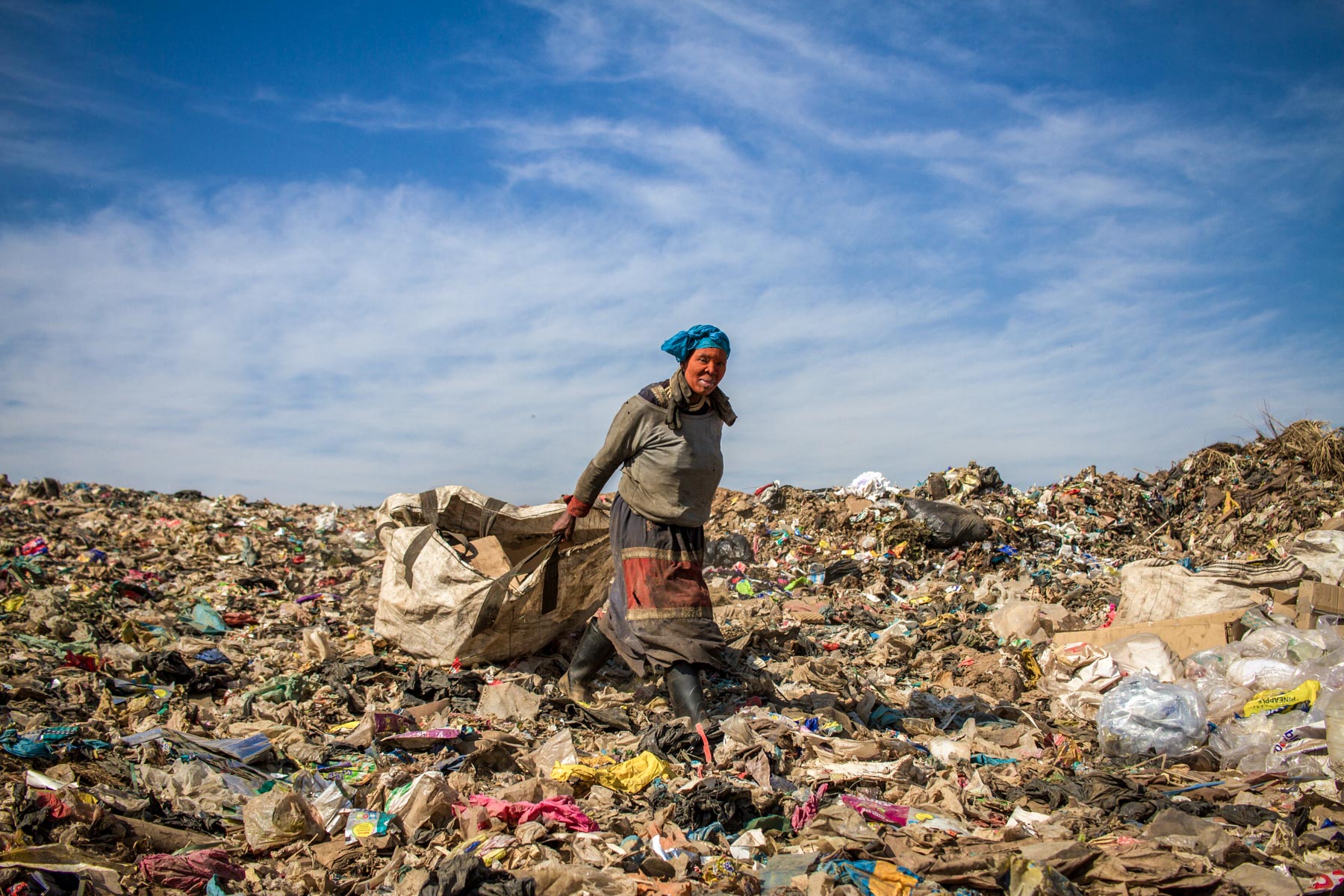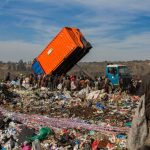Pietermaritzburg’s lockdown is a mix of good and bad
Covid-19 cases in the uMgungundlovu district have not spiralled out of control despite earlier alarm over the number of lockdown violations. But poverty and hunger lurk everywhere.
Author:
15 June 2020

When President Cyril Ramaphosa announced a national state of disaster in March, Pietermaritzburg resident Lungile Ngubane packed her bags and returned to her rural home of Msinga in the Umzinyathi district, KwaZulu-Natal.
Ngubane had no choice but to leave because the New England Road landfill site where she works as a waste picker was closed during the initial stages of South Africa’s lockdown period. “When they announced that we could go back to work under level three, I came back so that I can make some money at the dump,” she said.
The landfill site is run by the Msunduzi Local Municipality in Pietermaritzburg, and Ngubane has been working there for nine years. Along with hundreds of unemployed residents, she separates waste and sells what can be salvaged for a living. The strict lockdown regulations meant that those whose livelihoods depend on the dump had to make alternative plans to survive.
Related article:
“I have been sitting at home doing nothing,” said Ngubane. “When they announced that we could go back to work on 1 June, I was excited. I thought we could go back to the dump, but when we got there they did not allow us in.”
The special Covid-19 grant of R350 she has received from the South African Social Security Agency has provided a measure of relief. “It’s disappointing that it is not enough,” said Ngubane. “You know the responsibilities of being a mother. It’s difficult.”

‘Everything under control’
Early in May, Minister of Police Bheki Cele visited Pietermaritzburg and said KwaZulu-Natal’s capital city, along with Durban, were the worst in the province when it came to violations of the lockdown regulations. Cele has often been accused of encouraging a heavy-handed approach to policing, but he has denied that this has led to police abuse during the lockdown. He visited several areas and said he found that people were not wearing compulsory masks. He also expressed concern about the increasing number of Covid-19 cases recorded in the uMgungundlovu district, which encompasses seven local municipalities, and noted that in Dambuza, for example, “physical distancing, masks and sanitisers are things that they have never heard of”.
However, the Msunduzi municipality believes it “has everything under control”. Municipal spokesperson Thobeka Mafumbatha says the “City of Choice” is coping under the circumstances.
“When lockdown began we had to comply with the regulations, so we sanitised informal settlements and taxi ranks and closed places like swimming pools, libraries, halls and parks,” she said. “We are working with the police and traffic officers on enforcing the regulations. We are encouraging people to wear masks. We are checking that there is no overcrowding and social distancing.”
Related article:
New Frame reported in July last year that Pietermaritzburg had been plunged into crisis because of crumbling infrastructure, uncollected refuse, a severe lack of municipal services, a chaotic legislature as well as allegations of public funds being looted.
The former member of the executive council for cooperative governance and traditional affairs, Nomusa Dube-Ncube, had placed the Msunduzi municipality under administration in April owing to “a long period of instability and poor results”.
Mafumbatha acknowledges that the council still faces many challenges and says it hopes to resolve them in the new financial year. If anything, she says, the coronavirus pandemic has exposed some of the entrenched issues plaguing the city.
Hunger
In Snathing in Edendale, 48-year-old Jabu Dlamini says she and her family have been keeping to the government’s call to stay home, but it has been hard. “It is getting really difficult because we do not have food. We were promised food parcels but nothing has been forthcoming,” said Dlamini, who looks after five children, including two of her brother’s.
Her eldest daughter works at a salon, but that income has disappeared because salons are still not allowed to open their doors. “I am scared of hunger. Sometimes we go to bed on empty stomachs. We depend on my grandchild’s social grant.”
To make matters worse, says Dlamini, she cannot ask her neighbours for help because they, too, do not have food. “I applied for the R350 assistance but we haven’t received an answer yet.”
Related article:
A fellow resident of Snathing, 65-year-old Doreen Sithole, says the elderly in Pietermaritzburg are struggling to cope. “When we go to collect the grant, there is no social distancing in the queues and there are too many people in town. Because of unemployment, the elderly are now having to take care of their elderly children and grandchildren.”
Sithole, who is a member of the Pietermaritzburg Pensioners’ Forum, says she does not agree with Ramaphosa’s recent announcement that churches are allowed to hold services during level three. “How are people expected to social distance in church? People sing, hug each other and shake hands in church. I do not see how this is going to work, especially for us black people – we love going to church.”
Sithole says most of the senior citizens in her area obey the lockdown rules and regulations. “It’s the youth that are a problem.” She also fears that things will only get worse. “We haven’t found a cure [for Covid-19] and they are already easing the lockdown.”
Soaring household costs
Increasing food prices mean many families risk going to bed without food. A researcher for the Pietermaritzburg Economic Justice and Dignity Group, Julie Smith, says it looks as if the cost of a basket of food for a household might have increased by R973,93 in May, up from the R4 194,93 it cost before the lockdown in March.
“These food costs exclude the cost of household hygiene and domestic products, which women include in their food expenditures. Our basket in May 2020 puts this cost at R693,38 and excludes the extra spend on soaps and disinfectants, which women are now buying more of in an attempt to protect their families from Covid-19.”
More importantly, says Smith, data shows that households are unable to cover the food shortfall entirely. “There are families that simply do not have the money and cannot afford to buy more food. Most women then are finding it harder to feed their families and the periods of nutritional deprivation and hunger are now extended for longer. [Our] data and research findings thus raise very serious questions regarding the adequacy of the government’s interventions to help South Africans during the Covid-19 pandemic.”
Related article:
With regard to the lockdown’s impact on business activity in the municipality, the chief executive of the Pietermaritzburg and Midlands Chamber of Business, Melanie Veness, says she noted with concern that the city centre and malls were filled with people during level four.
“In respect of businesses, it seems that most were limiting the number of people permitted on their premises, but that there were problems with people queuing outside. Our compliant members in town have been feeling aggrieved because so many businesses that shouldn’t have been operating during level four have been doing so, seemingly with impunity.”
Veness says it’s difficult to balance health and economic needs. “It’s not a great choice for anyone to have to make, but we’re definitely at the tipping point – the point at which we have had to take a decision to open up the economy or risk not having much of one to open.
“We’ve lost several businesses already and there are plenty whose futures are hanging in the balance. I’m still really concerned about restaurants and tourism establishments still having to be closed – I think arrangements could be made for a large part of this sector to trade safely and I appeal to the government to reconsider their position as far as tourism is concerned.”
‘Good’ – for now
Mosa Moshabela, dean of the University of KwaZulu-Natal’s school of nursing and public health, says the number of Covid-19 cases in uMgungundlovu seems to be “quite good for now”, which is surprising given that South Africa’s first case of the disease was diagnosed in the district, on 5 March.
“One would therefore expect that for that reason alone, [Pietermaritzburg] should be among the worst hit in the country. Secondly, they are also a big city, albeit smaller than iTheku [Durban]. You’d therefore expect that the disease would spread because of economic activity and the extent of social engagements.”

Moshabela says the reason Pietermaritzburg has not been hit harder may be attributed to human behaviour. “Remember that the success of containing Covid-19 depends on whether people change behaviour or not. So Pietermaritzburg dealt with the shock, and swift action meant behaviour had to change. It became real for them long before others, and they had time to adapt in many ways and learn how to cope with the virus…”
The danger, warns Moshabela, is that people can become complacent when they realise the situation is not getting worse. “If this happens, we may then expect to see a new increase in infections in Pietermaritzburg, which we have not yet seen.”




